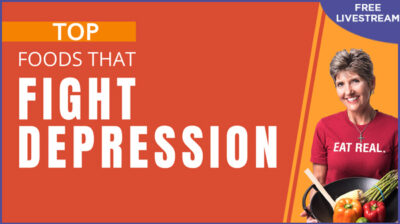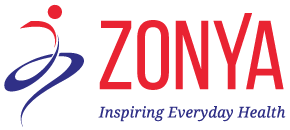Even Nutritionists Get the Blues
I remember having my only child a week before turning 37.
 As a nutritionist and an “older mom,” I had carefully followed all the prenatal nutritional guidance for helping him develop into a healthy baby.
As a nutritionist and an “older mom,” I had carefully followed all the prenatal nutritional guidance for helping him develop into a healthy baby.
- Nutrients like omega-3 fats, iron, calcium, folate, and B12? Knew ‘em!
- Prenatal vitamins? Took ‘em!
- Nutrient-rich diet? On it!
All went well. We were blessed with a healthy baby boy, 8 lbs 9 ounces.
I was so happy!
THEN, about 2 weeks postpartum, it hit me.
I. Was. Depressed.
 I wasn’t just tired or grumpy, or just having a moment.
I wasn’t just tired or grumpy, or just having a moment.
There was no “Just take a shower and you’ll feel better.”
I went through the motions of living and caring for my child, but I was SO sad.
I said to my husband, “This is how depression feels…and it’s horrible. I have no idea how people live with this!”
Fortunately, my depression lifted and has never returned. Twenty years later, I still remember those dark days. It has given me compassion for those who live with chronic depression, and it fuels my desire to help them.
But when you’re depressed, eating a healthy diet can feel impossible.
 During those postpartum days, I had NO energy to eat smartly. But I managed to anyway.
During those postpartum days, I had NO energy to eat smartly. But I managed to anyway.
Even when I wanted to grab nothing but nutrient-void things like cookies, chips, and ice cream, I reached for nutrient-rich soups, smoothies, and breakfast cookies.
How can we find ways to boost our nutrients when we can barely boost ourselves out of bed?
Antidepressant Food Score

Because there’s no question that our everyday food choices can either help or hinder our health outcomes.
This is true for depressive disorders too. In fact, studies have identified twelve nutrients that, when sufficient in the diet, appear to prevent and promote recovery from depression. Based on these studies, the Antidepressant Food Score (AFS) was developed as a way to rank foods most dense in these twelve nutrients.
Spoiler alert: Most of the foods with the highest AFS rankings are plants and seafood!
When it comes to preventing and treating depression, the goal is to incorporate as many of these foods into our regular diet as possible.
Top Foods that Fight Depression
 Eating right in general (and eating the right foods specifically) is essential for those battling the blues or fighting depression.
Eating right in general (and eating the right foods specifically) is essential for those battling the blues or fighting depression.
And that’s why I’m kicking off 2022 with a free livestream, Top Foods that Fight Depression. I’ll share 20 of the foods that have a high Antidepressant Food Score, as well as tips and recipes to make them an EASY and DELICIOUS part of your day.
It’s going to be a LIFE-CHANGING time, I guarantee it.

